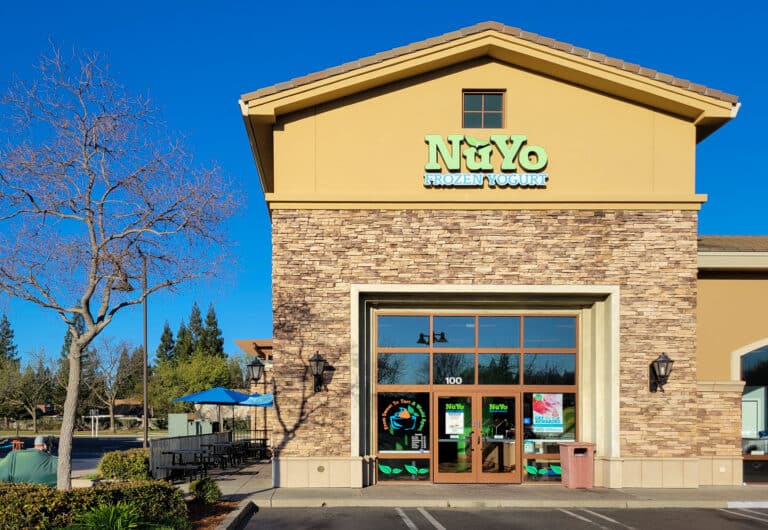Chuck E. Cheese’s Franchise FDD, Profits & Costs (2025)

Chuck E. Cheese’s is a well-known family entertainment and dining franchise founded in 1977 by Nolan Bushnell, the co-founder of Atari.
The first location, originally called Chuck E. Cheese’s Pizza Time Theatre, opened in San Jose, California, combining pizza, arcade games, and animatronic shows, making it a pioneering family-friendly restaurant concept.
In 1984, Chuck E. Cheese’s merged with its competitor Showbiz Pizza Place, and by 1995, the brand fully adopted the Chuck E. Cheese’s name. Now headquartered in Irving, Texas, Chuck E. Cheese is recognized for offering interactive games, and pizza, and a top destination for children’s birthday parties.
The franchise operates over 540 locations worldwide and continues to evolve its business model, introducing new arcade games and a modernized family entertainment experience.
While Chuck E. Cheese franchises are available internationally, they no longer offer franchise opportunities within the U.S.
Despite facing challenges, including a bankruptcy filing in 2020, the brand has remained a leader in the family entertainment industry. Its unique combination of food, fun, and live entertainment has helped it differentiate itself from competitors.
Initial Investment
How much does it cost to start a Chuck E. Cheese’s franchise? It cost on average between $1.17 million and $1.83 million to start a Chuck E. Cheese’s franchised restaurant when the franchisor was offering franchises.
This includes various costs such as real estate, construction, equipment, and initial setup.
Average Revenue (AUV)
How much revenue can you make with a Chuck E. Cheese’s franchise? A Chuck E. Cheese’s franchised restaurant makes on average $1.5 million and $2 million in revenue (AUV) per year.
This figure can fluctuate depending on the franchise’s performance, operational efficiency, and marketing efforts.
Frequently Asked Questions
How many Chuck E. Cheese’s locations are there?
As of recent reports, Chuck E. Cheese operates over 600 locations worldwide, including both franchise and company-owned units. The majority of these locations are within the U.S., but the company is increasingly focusing on international expansion.
What is the total investment required to open a Chuck E. Cheese’s franchise?
The total investment required to open a Chuck E. Cheese’s franchise ranges from $1.17 million and $1.83 million.
What are the ongoing fees for a Chuck E. Cheese’s franchise?
Franchisees are required to pay a royalty fee of 4% of their gross sales, which goes toward ongoing support and the brand’s operational standards.
Additionally, franchisees contribute 3% of their gross sales to the national marketing fund, which helps promote the brand and drive customer traffic through advertising and promotional activities.
What are the financial requirements to become a Chuck E. Cheese’s franchisee?
To become a Chuck E. Cheese’s franchisee, there are specific financial requirements that must be met. Prospective franchisees need a minimum net worth of $1.5 million, ensuring that they have the financial stability to invest in and sustain the business. In addition to this, franchisees are required to have at least $800,000 in liquid capital.
How much can a Chuck E. Cheese’s franchise owner expect to earn?
The average gross sales for a Chuck E. Cheese’s franchise are approximately $2.0 million per location. Assuming a 15% operating profit margin, $2.0 million yearly revenue can result in $300,000 EBITDA annually.
Who owns Chuck E. Cheese’s?
Chuck E. Cheese’s is owned by CEC Entertainment, Inc., which emerged from bankruptcy in 2021 after completing a significant financial restructuring. The company was acquired by Monarch Alternative Capital as part of this process.
Monarch, an investment firm, took control of the brand after CEC Entertainment filed for Chapter 11 bankruptcy in 2020, primarily due to financial struggles exacerbated by the COVID-19 pandemic. The restructuring allowed the company to eliminate substantial debt and continue operations under new ownership and leadership.
Disclaimer
Disclaimer: This content has been made for informational and educational purposes only. SharpSheets is an independent educational resource and is not affiliated with, endorsed by, or representing any franchisor mentioned on this website. Where noted, figures are taken from the franchisor’s Franchise Disclosure Document (FDD). In some cases, we may provide independent calculations or estimates based on publicly available information. We do not make any representation or warranties with respect to the accuracy, applicability, fitness, or completeness of the information presented in the article. You should not construe any such information or other material as legal, tax, investment, financial, or other professional advice. Nothing contained in this article constitutes a solicitation, recommendation, endorsement, advertisement, or offer to buy or sell any franchises, securities, or other financial instruments in this or in any other jurisdiction in which such solicitation or offer would be unlawful under the franchise and/or securities laws of such jurisdiction.
All content in this article is information of a general nature and does not address the detailed circumstances of any particular individual or entity. Nothing in the article constitutes professional and/or financial and/or legal advice, nor does any information in the article constitute a comprehensive or complete statement of the matters discussed or the law relating thereto. You alone assume the sole responsibility of evaluating the merits and risks associated with the use of any information or other content in this article before making any decisions based on such information or other content.




